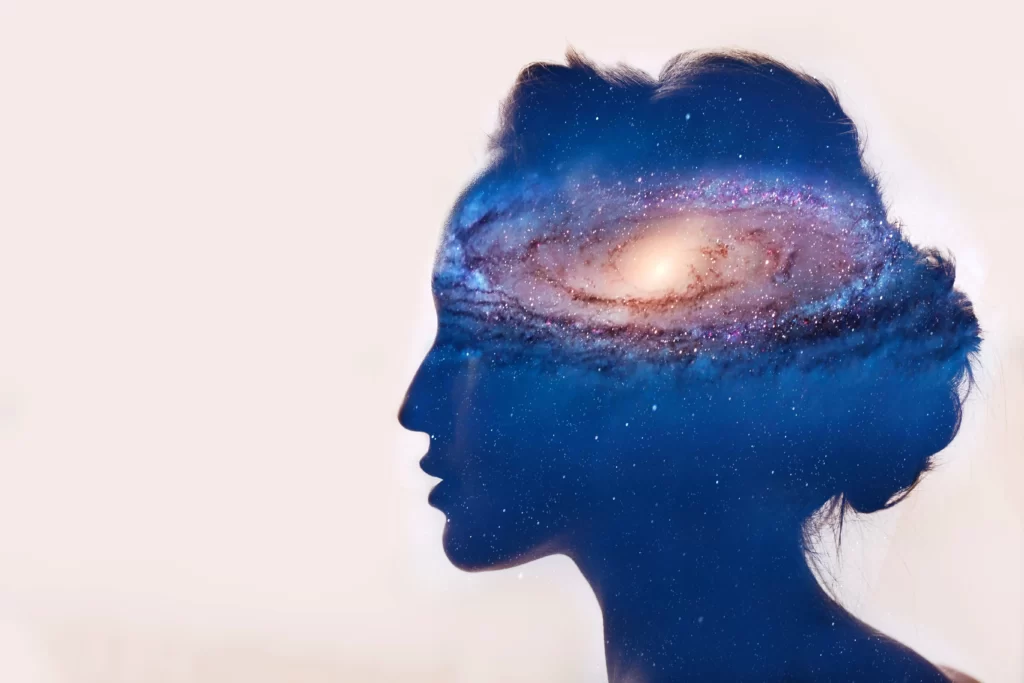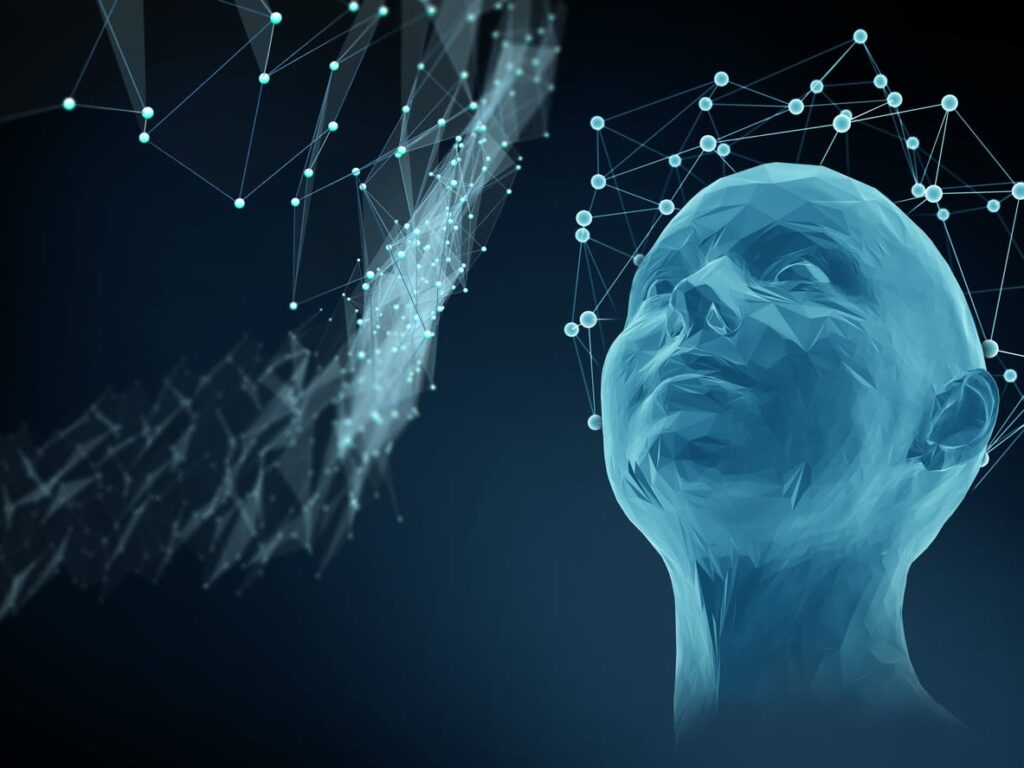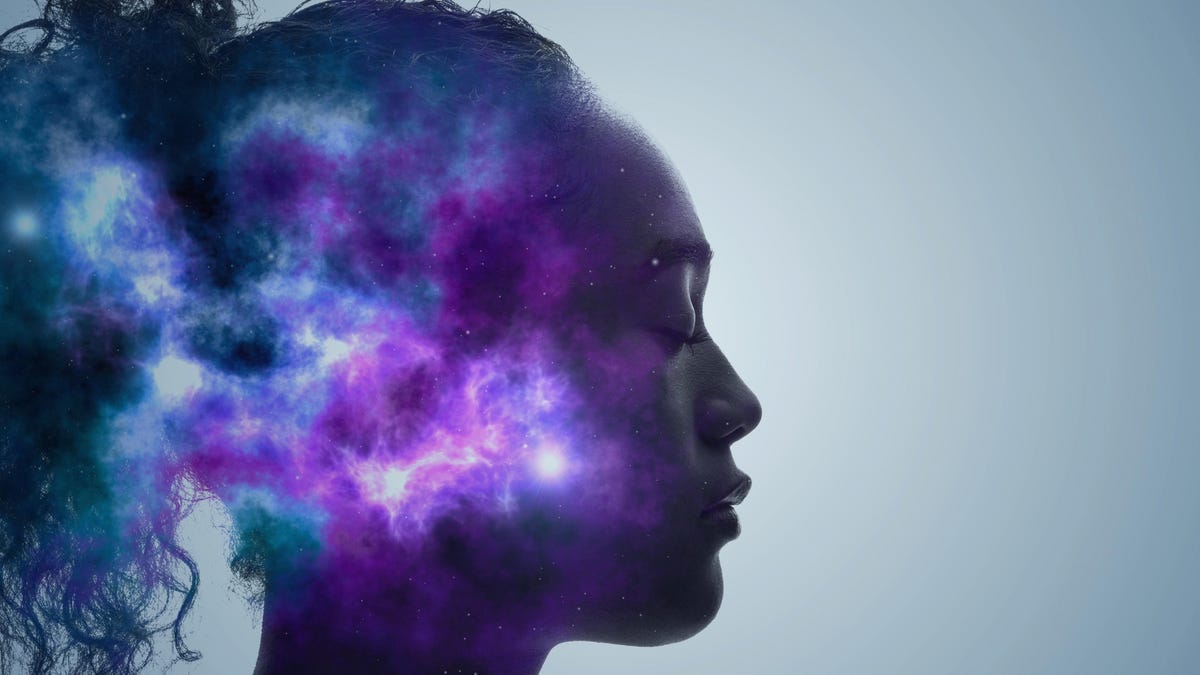Welcome to a profound exploration of the depths of human experience!
Are you ready to embark on a journey that delves into the mysteries of consciousness and awareness?
These two words may seem interchangeable at first glance, but they hold unique and -inspiring dimensions that are waiting to be unraveled.
From the realms of neuroscience to the realms of spirituality, consciousness, and awareness are enigmatic forces that shape our reality in ways that are both fascinating and mind-bending.
In this post, we will dive deep into the heart of these concepts, uncovering their subtle nuances, differences, and profound implications.
Get ready for an exhilarating ride as we embark on an adventure of self-discovery, expanding our understanding of what it truly means to be conscious and aware.
Buckle up, for we are about to embark on a captivating journey into the depths of human consciousness and awareness!
Table of Contents
Definition of Consciousness
Consciousness is a complex and multifaceted phenomenon that is central to the human experience.
It refers to the state of being aware of one’s own thoughts, emotions, and surroundings, and the ability to perceive and process information from the external world.
Without consciousness, our mental processes would be purely mechanistic and devoid of subjective experiences.
From a neuroscience and cognitive perspective, consciousness arises from the intricate workings of the brain and its networks.
It involves the integration of sensory inputs, memory, attention, and higher-order cognitive functions that give rise to our conscious experiences.
Consciousness is also not limited to humans but is a characteristic of many other living organisms.
However, the nature and extent of consciousness in different species remain a topic of ongoing scientific investigation and debate.
It’s worth noting that consciousness is relative and can vary in different states, such as during sleep, meditation, or altered states of consciousness induced by drugs or other means.
Additionally, the understanding of consciousness continues to evolve with advancements in scientific research, philosophy, and spirituality, leading to diverse perspectives and theories about its nature and significance in human existence.

Definition of Awareness
Awareness is a profound state of being fully present and fully aware of one’s inner and outer experiences.
It goes beyond the superficial level of conscious perception and encompasses a deeper, more holistic understanding of the self and the world.
Awareness is often described as total and absolute, devoid of any fragmentation or division.
In spiritual and philosophical contexts, awareness is often considered primordial, meaning it is an original state that precedes and transcends any specific objects or concepts of perception.
It is an all-encompassing state of consciousness that connects us to the fundamental essence of existence, beyond the limitations of the mind and ego.
Unlike consciousness, which can be seen as a cognitive process mediated by the brain, awareness is often seen as a transcendent quality that is beyond the realm of thoughts, emotions, or sensory inputs.
It is an inherent quality of our being, beyond any conceptual or perceptual boundaries.
In this state of heightened awareness, we are fully present and fully engaged with the present moment, without being caught up in the fluctuations of the mind or the distractions of the external world.
It is a state of deep presence and mindfulness that allows us to connect with our true nature and experience the richness and depth of reality as it is, without any filters or interpretations.
In essence, awareness is an original and intrinsic aspect of our being, representing a deeper level of consciousness that is beyond the fragmented nature of our perceptions and experiences.
It is a state of pure presence and wholeness, where we can connect with our true essence and experience the beauty and interconnectedness of existence.

Key Differences between Consciousness and Awareness
While consciousness and awareness are closely related, they have distinct differences that are important to understand.
One significant difference between consciousness and awareness is that consciousness can exist without awareness, but awareness is considered to be absolute and all-encompassing.
Consciousness, in the context of psychology and neuroscience, refers to the state of being aware of one’s thoughts, emotions, and sensations.
It involves the cognitive processes mediated by the brain that give rise to our subjective experiences.
However, consciousness can sometimes be limited to specific objects or aspects of perception, and it may not necessarily encompass the entirety of our existence.
On the other hand, awareness is often seen as a more profound and all-encompassing state that transcends the limitations of the mind and the sensory perceptions.
It is considered to be absolute and beginningless, representing a deeper dimension of our being that is not tied to specific objects or concepts of observation.
While consciousness can arise from sensations and external stimuli, awareness is not limited to sensory inputs but is seen as a more fundamental and intrinsic quality of our being.
It is not dependent on any specific objects or processes but is an inherent aspect of our nature that is always present, regardless of the fluctuations of the mind or the changing nature of our experiences.
Furthermore, while consciousness can be directed towards specific objects or thoughts, awareness is often described as all-encompassing, representing a state of pure presence that transcends any specific content of perception.
It is considered to be a state of deep observation and mindfulness that is not limited to any particular aspect of our experience but encompasses the entirety of our existence.
While consciousness and awareness are closely related, awareness is often seen as a more profound, absolute, and all-encompassing state that goes beyond the limited scope of conscious perception.
It is considered to be a beginningless dimension of our being that represents a deeper level of consciousness beyond the fluctuations of the mind or the sensory perceptions.

Relationship between Consciousness and Awareness
Consciousness and awareness are two closely related yet distinct concepts that are often used interchangeably, but they have subtle differences.
Awareness is often considered to be the primordial state, while consciousness refers to the cognitive processes that arise from the brain and give rise to our subjective experiences.
In the current moment, people are often aware of their surroundings and experiences.
This awareness encompasses the sensory perceptions, emotions, and thoughts that arise in the present moment.
However, consciousness, in the context of psychology and neuroscience, refers to the complex processes mediated by the brain that give rise to our conscious experiences.
One significant difference between awareness and consciousness is that awareness can exist without consciousness.
Awareness is often seen as a fundamental aspect of our being that is not limited to the biological processes of the brain.
It is considered to be a state of pure presence that transcends the fluctuations of the mind and the changing nature of our experiences.
Consciousness, on the other hand, is tied to the biological processes of the brain and is often limited to specific objects or aspects of perception.
It involves the cognitive processes that give rise to our subjective experiences, such as our thoughts, emotions, and sensations.
While consciousness and awareness are related, they are often seen as two words that refer to different dimensions of our being.
Consciousness represents the cognitive processes that arise from the brain, while awareness is often considered to be a more fundamental and intrinsic quality of our nature that is in equilibrium and without change.
Human consciousness is shaped by various factors, such as genetics, environment, and experiences.
It can be influenced by the fluctuations of the mind and the changing nature of our perceptions.
On the other hand, awareness is often described as primordial and unchanged, representing a state of deep presence that transcends the fluctuations of consciousness.
While consciousness and awareness are related, they have distinct differences.
Consciousness refers to the cognitive processes mediated by the brain that give rise to our subjective experiences, while awareness is often seen as a more fundamental and unchanging aspect of our being.
Understanding the relationship between consciousness and awareness can provide insights into the nature of human consciousness and the primordial state of awareness that transcends the fluctuations of the mind.

Levels of Consciousness and Awareness
Consciousness and awareness can manifest at different levels, ranging from ordinary states of waking consciousness to altered states of consciousness that may involve different degrees of awareness.
In some cases, awareness is considered to be total and absolute, while consciousness can exist without awareness, leading to unique experiences and perceptions.
Stephen LaBerge, a renowned researcher in the field of consciousness studies, has proposed a model of levels of consciousness that includes different states of awareness.
According to LaBerge, the ordinary state of waking consciousness, which most people experience in their daily lives, is often characterized by a psychological state of duality.
Where the conscious mind is engaged in cognitive processes and the awareness is focused on the external world and the sense of self.
However, beyond the ordinary state of waking consciousness, there are altered states of consciousness where awareness may expand or shift to different levels.
These states may involve heightened states of awareness, such as lucid dreaming, where an individual becomes consciously aware within a dream, or meditation, where one can attain deep states of meditative awareness.
In some cases, consciousness can exist without awareness, such as in instances of automatic behaviors or habitual actions where conscious awareness may be diminished.
This suggests that consciousness and awareness are not always synonymous and can manifest independently in different ways.
It is worth noting that the relationship between consciousness and awareness can vary depending on different philosophical, spiritual, and cultural perspectives.
Some perspectives consider awareness to be total and absolute, while consciousness is seen as a cognitive process that arises from the brain.
Other perspectives may emphasize the interconnectedness of consciousness and awareness, considering them to be inseparable aspects of our being.
In summary, levels of consciousness and awareness can vary, ranging from ordinary states of waking consciousness to altered states of consciousness.
Awareness is often considered to be total and absolute, while consciousness can exist without awareness in some instances.
Understanding the nuances of levels of consciousness and awareness can provide insights into the complex interplay between these concepts and their role in human experiences and perceptions.
.

Importance of Consciousness and Awareness
Consciousness and awareness play vital roles in our daily lives, shaping our perceptions, experiences, and overall well-being.
While awareness is often considered to be total and absolute, consciousness involves cognitive processes that can impact our self-awareness and state of being.
Awareness, being fully present in the current moment, allows us to perceive the world around us without judgment or bias.
It is a state of being where we are open and receptive to our surroundings, without being clouded by cognitive processes or preconceived notions.
Awareness allows us to fully experience and appreciate the present moment, leading to a deeper sense of connection with ourselves, others, and the world.
Consciousness, on the other hand, involves cognitive processes such as perception, cognition, and self-awareness.

It encompasses our thoughts, emotions, and subjective experiences.
Consciousness allows us to process information, make decisions, and navigate the world around us.
The interplay between consciousness and awareness is crucial for our well-being.
Being aware of our thoughts, emotions, and sensations without being overly identified with them can lead to a sense of calm and equanimity.
It can also enhance our self-awareness, enabling us to understand our thoughts, emotions, and behaviors in a more objective and compassionate manner.
Moreover, consciousness and awareness are linked to our mental, emotional, and physical health.
Research suggests that practicing mindfulness, a form of intentional awareness, can improve cognitive function, reduce stress, and enhance overall well-being.
Being conscious of our thoughts, emotions, and behaviors allows us to make healthier choices and respond to life’s challenges with greater resilience and adaptability.
In addition, consciousness and awareness are fundamental to our spiritual journey.
Cultivating heightened states of awareness, such as through meditation or contemplative practices, can lead to a deeper understanding of ourselves, others, and the nature of existence.
It can open doors to profound insights, expanded perspectives, and a sense of interconnectedness with all living beings.
In conclusion, consciousness and awareness are vital aspects of our human experience.
While awareness is often considered to be total and absolute, consciousness involves cognitive processes that shape our perceptions, thoughts, and emotions.
Understanding and cultivating both consciousness and awareness can lead to greater wellbeing, self-awareness, and spiritual growth.

Factors Affecting Consciousness and Awareness
Consciousness and awareness can be impacted by several factors, which influence our perception and experience of reality. These factors can include:
1● Consciousness without awareness:
Consciousness can occur without complete awareness.
For example, during automatic or habitual behaviors, our consciousness may not be fully engaged, and our level of awareness may be diminished.
2● Total and absolute awareness:
Awareness is often considered to be total and absolute, involving a state of complete presence in the current moment.
However, our level of awareness can be influenced by various factors, such as distractions, stress, or preoccupations, which can impact our level of consciousness.
3● Differences in dimensions:
Consciousness and awareness are often believed to refer to different dimensions of human experience.
Consciousness involves cognitive processes, while awareness is often considered to be a more primal and holistic state, without distinct parts or divisions.
4● Influence of external factors:
Our upbringing, cultural background, and societal conditioning can also affect our consciousness and awareness.
Our beliefs, values, and perspectives are often shaped by external influences, which can impact our perception of reality and level of consciousness.
5● States of consciousness:
Different states of consciousness, such as waking, dreaming, and deep sleep, can also impact our level of awareness and conscious experience.
For example, during sleep or in altered states of consciousness, our level of awareness may be diminished or altered, affecting our perception and experience of reality.
6● Individual differences:
Each person has a unique cognitive, emotional, and psychological makeup, which can affect their consciousness and awareness.
Factors such as genetics, personality, and life experiences can influence our level of consciousness and awareness, leading to individual differences in how we perceive and experience reality.
7● Spiritual practices:
Spiritual practices such as meditation, mindfulness, and contemplation can also impact our consciousness and awareness.
These practices can cultivate heightened states of awareness and expanded perspectives, leading to a deeper understanding of ourselves, others, and the nature of existence.
Consciousness and awareness can be influenced by various factors that shape our perception and experience of reality.
Understanding these factors can help us cultivate a greater level of consciousness and awareness, leading to a more enriched and meaningful human experience.

Techniques to Enhance Consciousness and Awareness
There are various techniques and practices that can enhance consciousness and awareness, allowing us to deepen our spiritual journey. Some of these practices include:
● Meditation: Regular meditation practices, such as mindfulness meditation, can help quiet the mind, expand our awareness, and cultivate a deeper connection with our inner selves.
● Mindful presence: Being fully present in the moment, without judgment or distraction, can enhance our awareness and allow us to engage deeply with our experiences and surroundings.
● Self-reflection: Engaging in self-reflective practices, such as journaling, introspection, and self-inquiry, can help us gain insights into our thoughts, emotions, and patterns of behavior, and increase our self-awareness.
● Connection with nature: Spending time in nature and immersing ourselves in the beauty and serenity of the natural world can help us cultivate a sense of interconnectedness and expand our consciousness.
● Inner work: Engaging in inner work, such as shadow work, emotional healing, and self-inquiry, can bring to light our unconscious patterns and conditioning, allowing us to integrate and transform them for higher levels of consciousness.
FAQs
1● Are consciousness and awareness the same thing?
While consciousness and awareness are related concepts, they are not exactly the same thing.
Consciousness refers to the state of being awake and aware of our surroundings and experiences.
While awareness involves a deeper level of presence and observation, allowing us to be fully attentive to the current moment without judgment or distraction.
2● Can consciousness and awareness be enhanced?
Yes, consciousness and awareness can be enhanced through various practices such as meditation, mindfulness, self-reflection, inner work, and connection with nature.
These practices can help expand our state of wakefulness, deepen our self-awareness, and increase our level of presence and mindfulness in everyday life.
3● Why are consciousness and awareness important in spirituality?
Consciousness and awareness are important in spirituality as they play a crucial role in our self-realization and inner transformation.
They help us gain insights into our true nature, navigate life with clarity and discernment, and cultivate a deep connection with ourselves, others, and the world around us, leading to a more fulfilling and awakened life.

4● What factors can affect consciousness and awareness?
Various factors can affect consciousness and awareness, including upbringing, education, culture, environment,
life experiences, mental and emotional states, and daily habits.
It is important to be mindful of these factors and consciously cultivate practices that support the expansion of consciousness and awareness.
5● How can I enhance my consciousness and awareness in daily life?
You can enhance your consciousness and awareness in daily life by engaging in practices such as meditation, mindfulness, self-reflection, connection with nature, and inner work.
Being fully present in the moment, observing your thoughts and emotions without judgment, and cultivating self-awareness are some key practices that can deepen your consciousness and awareness in everyday life.
Related Article: What Is Shadow Work – A Powerful Hack for Inner Growth

Conclusion
Consciousness and awareness are complex and multifaceted aspects of human experience. While consciousness involves cognitive processes, awareness is often considered a more primal and holistic state.
They can be influenced by various factors, including external influences, states of consciousness, individual differences, and spiritual practices.
Becoming conscious of the factors that impact our consciousness and awareness can lead to a broader understanding of ourselves and the world around us.
By cultivating voluntary awareness and being mindful of our thoughts, emotions, and perceptions, we can expand our consciousness and experience a more enriched and meaningful human existence.
Unawareness or lack of consciousness can result in automatic or habitual behaviors, limiting our ability to fully engage with the present moment.
However, by cultivating calm and silent awareness, we can develop a deeper connection with ourselves and others, leading to a more harmonious and fulfilling life.
In conclusion, consciousness and awareness are intertwined aspects of human experience that are influenced by various factors.
By understanding and cultivating them, we can enhance our self-awareness, well-being, and overall quality of life, leading to a more conscious and fulfilling existence.
Namaste 💫✨




